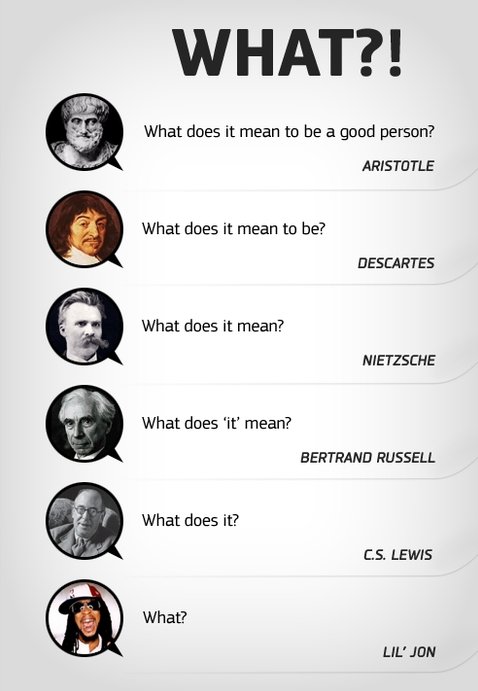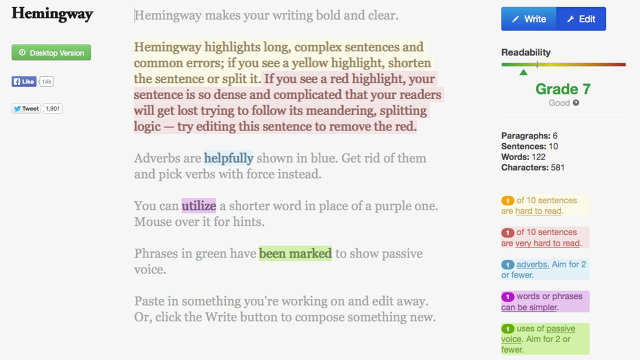Time for another blog post.
Let’s circle back to my initiative here. I was tasked with producing some clear-thinking, needs-based messaging that integrates with our content team’s centralized goal of providing impactful thought leadership that fits within the strategic framework of our standardized quality benchmarks. Okay, Coate. Time to take it to the next level.
Boom. Synergy.

If you followed that babble above, you’ve obviously spent time in a corporate environment.
Buzzwords are common occurrences in office exchanges. They’re also one of the most annoying and mocked elements of office life. A discussion that asked “What industry buzz word would you love to replace?” became the most commented-on discussion in The Content Marketing Academy LinkedIn group in under a week, and is certainly among the most spirited.

Synergy. Source: https://dilbert.com
The comments in that thread are comical, but also challenging. It’s one thing to overuse words interpersonally. But in marketing, overusing the same hackneyed phrases burns out an audience and becomes an unwelcome distraction.
Read through that list. I bet you will see a word or two you’ve spoken (or typed) recently. You might even wonder, “Geez, are there any words left that aren’t being worn out by marketers?”
Each year we see new lists of overused words or phrases. It’s an interesting, predictable phenomenon.
- Step 1: A word catches on.
- Step 2: Many people use it.
- Step 3: Many people complain about how many people are using it.
When all you’re saying is a series of buzzwords, then what are you saying?
Marketers (and copywriters)—people who possess a wide grasp of language—are not immune. How many articles include the phrase “content is king,” or “we’ve been content marketing for hundreds of years,” or “[insert marketing tactic here] is dead”?
But let’s cut ourselves a little slack for a minute. (After all, we at Kapost have been guilty of this, too.) Some of these words still retain purpose and meaning, regardless of how frequently they’re used. But when all you’re saying is a series of buzzwords, then what are you saying?

“So does this mean, we have to be the “Lil’ John of Marketing'”? Yes. Yes it does.
When swamped, it’s easy to use the same old headlines or write the same copy. However, you run the risk of your meaning being lost and even turning off potential customers. The best way to avoid indifferent or negative reactions to your content is to get rid of the fluff and say what you mean. Be clear, concise, and provide value. Focus on practicality in your marketing.
That, I know, is easier said than done, so below I’ve outlined 3 ways to help you get to the point in your marketing.
Force Yourself to Be Brief
At Kapost, each member of our content team must express the value of each content piece in a single, provocative sentence. We have to enter it into a field prior to submitting our content for editing/approval. It’s been a great exercise for us, and I know I have personally done some major rewriting after realizing I couldn’t do that for a post. The end result was much better than the ramblings that had been there before. Try this exercise for a piece of content. It’s hard, but you’ll be thankful you did.
Create Short-Form Content
The obvious thing to say is to keep your points tweet-worthy. However, lately at Kapost we’ve been all about SlideShare (we’re not the only ones, either). SlideShare forces you to think about what words—not sentences—you need to get your point across. It’s great for marketers looking to deliver big ideas is a visual, digestible way.
Based on the feedback we got from Masters of SlideShare, we follow best practices of image-dominated presentations, with little text. Try taking a piece of content and creating a concise, minimal SlideShare. You’ll find yourself doing a lot of cutting, which will put more focus on your core value proposition.
Talk to Strangers
If a person outside your marketing department can’t understand what you’re trying to get across, it’s probably too dense.
Now, you might think “Okay, but ‘random person on the bus’ isn’t exactly my target market.” So what? The point here is to practice simplicity in your marketing content. You may want use terms that resonate with your intended audience, and sure, some topics are more complex than others. But you should be able to convince someone to care about your content in fewer words than Atlas Shrugged.
If want some technology help, download an app called Hemingway. It was built to “counter all of the horrendous prose used across all areas of business writing,” and promises to strip the extraneous, the weak, and the complicated from your writing.

Image Credit: Fast CoCreate
It’s time to make your content more meaningful. Need help? View this video by content marketing experts about being engaging and entertaining.
Or, flip through the SlideShare below. Both of these pieces feature one of our 13 Masters of SlideShare.
Boom. Synergy?
https://www.slideshare.net/dougkessler/crap-the-content-marketing-deluge
